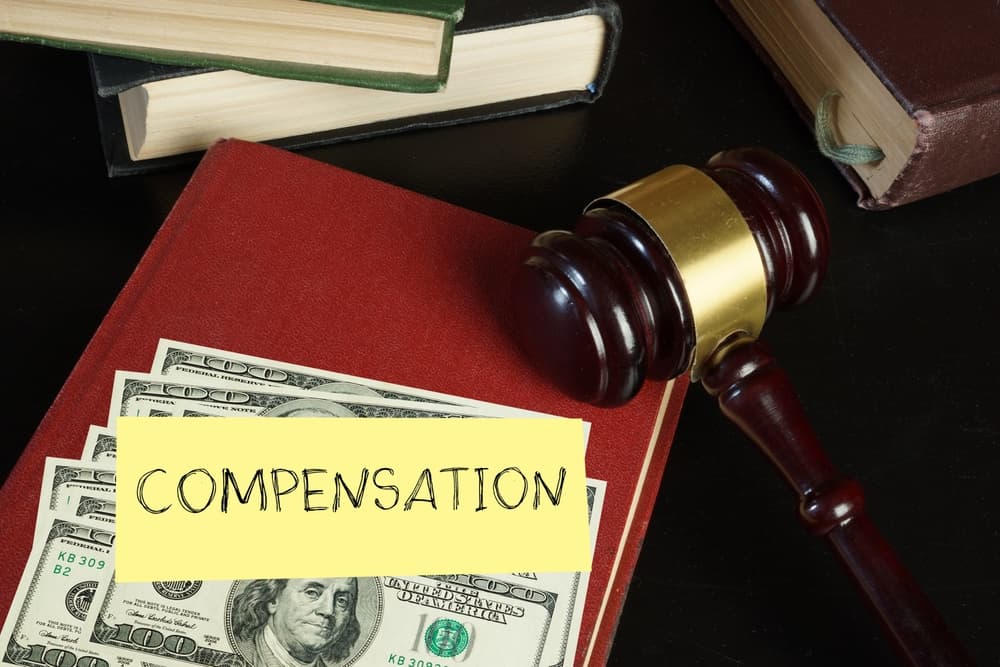In the wake of an accident or an injury, many individuals are left wondering how long it will take before an offer is made. This uncertainty can be particularly stressful when medical bills are mounting, and income has come to a halt. While some claims move forward without interruption, others face deliberate delays. Insurance carriers may postpone offers as a delay strategy, waiting to see if the claimant, who is already under financial pressure, will accept a lower settlement than they deserve. In such cases, having legal representation can make a decisive difference.
A personal injury attorney understands the insurance settlement procedures. They can apply pressure where needed to challenge unnecessary delays. It helps move the claim toward a timely resolution.
Continue reading to understand the key factors that influence the timeline of a compensation offer and what you can do to protect your rights during the waiting period.
Understanding the Complexity of Personal Injury Claims

The timeline for receiving a compensation offer is shaped by several moving parts within a personal injury claim. Each case demands a careful review of the facts, particularly how the injury occurred and who bears legal responsibility. When liability is disputed or involves more than one party, negotiations tend to slow down as insurers conduct their investigations to protect their financial interests.
Medical evidence also plays a central role. Before any offer is made, insurers want a complete picture of the injury, including the diagnosis, required treatment, and long-term impact on the claimant’s health and ability to work. Gathering this information from providers can take time, especially when specialists are involved, or treatment is ongoing.
Additionally, legal procedures as stipulated by personal injury law must be followed precisely. If you miss deadlines, hand over incomplete documentation, or delay communication between parties, it can stall your claim. Each of these factors influences how soon a compensation offer might be extended.
Each state has a statute of limitations; this is a deadline for filing a lawsuit for a personal injury claim. Your attorney will not allow you to miss these deadlines. Seek a skilled attorney today.
What Factors Affect Offer-Wait Duration?
The length of time it takes to receive a compensation offer is shaped by several key factors. While it is not likely to have two personal injury claims exactly alike, some circumstances consistently influence how quickly or slowly a case moves forward. Your personal injury attorney can help you grasp how pertinent issues affect your case’s timing so you can prepare more realistically for the road ahead. This is because these are not just background details but often determine the pace and direction of the claims process.
Severity of Your Injuries
The extent of your physical injuries is one of the most significant factors in determining how soon a claim can be resolved. Minor injuries with predictable recovery timelines may lead to faster evaluations and earlier offers. However, in cases involving serious or permanent injuries, medical professionals may need months to fully assess long-term impact, future treatment needs, or disability. Insurance companies are unlikely to extend a meaningful offer until your condition reaches a point of maximum medical improvement (MMI), where no further recovery is expected. This wait ensures that damages are not underestimated.
Complexity of Your Case
Cases involving multiple liable parties, unclear fault, or legal disputes over causation tend to proceed more slowly. For example, assigning responsibility may require additional investigation, expert opinions, and legal maneuvering if the injury occurred at a construction site with several subcontractors involved. Similarly, if pre-existing medical conditions are in question, insurers may demand further analysis to distinguish between prior and current injuries. These complications can lead to prolonged negotiations or even litigation, extending the timeline for any compensation offer.
Cooperation of Other Parties and Insurance Companies
A cooperative insurer may respond promptly to demands, provide requested documentation, and move negotiations forward. Unfortunately, this is not always the case. Some insurance companies use stalling tactics—delaying communication, requesting redundant information, or challenging clear evidence—to pressure claimants into accepting less favorable terms. Also, delays can result from poor coordination or strategic positioning when multiple parties or their legal representatives are involved. The level of cooperation among all parties involved can either accelerate or stall the resolution.
Civil Court Schedule
If a settlement cannot be reached through negotiation and the case proceeds to litigation, court scheduling becomes a significant factor in timing. Courts often face heavy caseloads, and hearings or trials may be set months out, particularly in crowded jurisdictions. Even pre-trial motions and discovery phases are governed by court calendars, which are beyond the control of any one party. While legal teams can push for timely progression, delays in court availability are a common cause of extended timelines in personal injury cases.
Gathering Evidence and Establishing Liability
Strong claims rely on comprehensive evidence, which includes police reports, medical documentation, expert opinions, photographs, video footage, and witness statements. However, collecting this information is not always straightforward.
Hospitals may delay releasing medical records, witnesses may be difficult to reach, or experts may need time to conduct a thorough review. Establishing clear liability, particularly when contested, also takes careful legal and factual analysis. Each step adds time, but presenting a claim that the defense will take seriously and value properly is necessary.
When To Accept a Compensation Offer

Deciding when to accept a compensation offer in a personal injury claim is not just a matter of timing but more about judgment grounded in evidence, medical clarity, and legal strategy. Settling too early may bring immediate relief, but it can also lock you into an amount that fails to cover the full cost of your injury, especially when future complications or losses remain uncertain. Therefore, here are the factors that may determine when to accept an offer:
Full Assessment of Damages
Before accepting any offer, you must clearly and thoroughly understand the full extent of your damages. It includes current medical expenses, lost income, and projected costs for ongoing treatment, rehabilitation, and diminished earning capacity. You must also factor in emotional pain and loss of quality of life and be appropriately valued. If you settle before your long-term prognosis is known, it can permanently prevent you from recovering future losses once your claim is closed.
Insurer’s Negotiation Posture
Many insurance companies begin with a low offer, knowing that some claimants might accept quickly, especially those in financial distress. It is essential to recognize whether the offer is a preliminary figure or the insurer’s final position. Rejecting the initial proposal and continuing negotiations often results in a higher settlement, particularly when the claim is well-supported and the legal pressure is applied effectively.
Stability of Your Medical Condition
It’s rarely advisable to settle a claim before your condition reaches maximum medical improvement (MMI). At this point, physicians can provide a reliable prognosis, which is critical in assessing long-term needs. Any compensation decision made before MMI carries the risk of underestimating permanent impairments or future care requirements that were not yet fully understood.
Personal Financial Needs and Timing
While it’s important not to settle prematurely, real-life financial pressures, such as unpaid medical bills or loss of income, may force difficult decisions. In these situations, legal counsel can help secure temporary or interim benefits, such as income replacement or medical cost coverage, while continuing to pursue a more comprehensive settlement. Balancing immediate needs with long-term financial security is a complex task that should not be done without legal support.
The Nature of the Claim
Some types of claims inherently require more time and scrutiny before resolution. For instance, medical malpractice claims involve extensive medical records, expert testimony, and a higher burden of proof. These elements make the investigative process more time-consuming and often prolong negotiations.
Similarly, if your personal injury claim involves children or other vulnerable individuals, it will require court approval before any settlement is finalized. This added requirement of judicial oversight ensures the terms are in the injured party’s best interest but can also delay the finalization of compensation.
These factors all point to the conclusion that you should not make decisions about compensation in haste or without a complete understanding of their long-term consequences. Legal representation protects your interests and ensures that any offer you accept reflects the scope of your injuries and future needs.
What If the Compensation Offer Is Too Low?
Obtaining a compensation offer that does not reflect the full extent of your injury-related losses can be frustrating, especially after months of medical treatment, financial strain, and legal procedures. However, a low offer does not mark the end of your claim. It’s a starting point in a negotiation that demands a deliberate and well-supported response.
The first step is to compare the proposed amount with your incurred losses. Insurers are required to justify their offers when asked. A formal request for the basis of the settlement figure can reveal whether the low amount is due to a lack of evidence, a disputed liability position, or simply a negotiation tactic.
A low offer should be countered with a revised demand supported by relevant evidence. The counteroffer should also address the insurer’s justifications point by point. Your personal injury attorney will help demonstrate a strong command of your claim’s facts and legal merits. It signals that you are not prepared to settle for less than what is reasonable.
You can file a lawsuit if the insurer maintains an unreasonably low stance despite a well-substantiated claim. Litigation allows for judicial review of the case and places additional pressure on the insurer to reassess the claim’s value. In many cases, the act of initiating legal proceedings leads to improved settlement offers before trial becomes necessary.
How Can a Personal Injury Lawyer Help?

When facing a compensation offer after a personal injury, legal representation can be the deciding factor between an undervalued settlement and a fair recovery. Insurance companies operate with their financial interests in mind. The mere presence of legal representation changes how insurers evaluate risk. Lawyers can initiate litigation, demand discovery, and compel disclosure. These capabilities increase the likelihood of a higher settlement, either through direct negotiation or as part of trial preparation.
Insurers may present deliberately low initial offers, anticipating that unrepresented claimants may accept them out of urgency or lack of information. A lawyer can evaluate such offers objectively and draft counteroffers backed by evidence, legal precedent, and a clear justification for the demand. It signals to the insurer that your claim will not be resolved on discounted terms.
Claimants are frequently pressured to settle quickly, especially when financial stress or injury-related fatigue is present. A personal injury lawyer acts as a barrier to that pressure, managing all communications with the insurer and reviewing the legal implications of every offer. They ensure no settlement is accepted without clearly understanding what rights are being waived and whether the amount satisfies current and future needs.
The strength of a compensation offer is directly tied to the quality of evidence presented. An attorney ensures that medical records, expert opinions, income documentation, and liability proof are organized, admissible, and persuasive. This level of preparation not only supports negotiations but positions the claim for trial, should it become necessary.
In compensation matters, legal counsel safeguards your financial recovery, enforces accountability, and ensures the outcome reflects the actual cost of your injury. Whether or not to accept a settlement offer is a legal decision with severe implications, and you should never do it without legal guidance.
Call Your Personal Injury Lawyer For Legal Support
A compensation offer carries real financial weight, and the time it takes to receive one can directly affect your recovery and stability. Still, balancing the urgency of receiving funds with the need to make sure the offer reflects the full value of your losses is vital. A personal injury lawyer will inspect the fairness of your offer, push back against unnecessary delays, and help pursue a resolution that meets immediate and future needs.
Don’t let pressure or uncertainty push you into a settlement that fails to protect your rights. Contact your attorney as soon as possible to help secure timely, fair compensation while safeguarding your right to a fair recovery.














